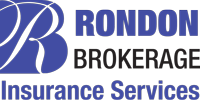Regardless of the type of food they serve or the atmosphere they create, restaurants need certain basic insurance coverages to protect their businesses and operations. General Liability, business property coverage, and business interruption are all fundamental coverages for any business. Fortunately, these coverages are usually bound together in the business owner policy or a commercial package. Apart from basic coverage, restaurants have unique risks that may necessitate additional coverages such as workers compensation, disability benefit law, liquor liability, among others. The purpose of this article is to broaden your knowledge of business insurance, to make you aware of the risks you face, and help you customize your insurance needs.
Restaurants, like most businesses, have employees, which means they must have workers compensation and disability benefit law insurance because they are required by state law. If your employee gets sick or injured while performing his job duties, workers compensation will help to cover the cost of expenses such as medical bills, physical therapy, medicines, lost wages, disability, and death benefits.
Restaurants serve food. So, having food spoilage protection provides peace of mind. Food spoilage protects restaurant owners if food is lost to contamination or spoilage due to electrical outages. Imagine that the refrigerator conks out because of an electrical outage; the food spoils and is contaminated by bacteria, and you must throw it away. With food spoilage the business can get reimbursed for the cost of replacing the spoiled or contaminated food. This coverage may be obtained by policy endorsement.
If a restaurant serves liquor, then liquor liability should be seriously considered. This coverage protects the business from body injury and property damage claims that a drunk person causes after being served in your business. Here are two examples of liquor liability claims: A minor buys liquor at your restaurant, gets drunk and crashes his car into a storefront. A patron gets drunk and assaults a person outside of your business. This type of overage may be purchased as a standalone policy or by endorsing the general liability policy.
Employment practices liability will protect your business from employment related claims such as wrongful job termination, discrimination, wages and hours violation, harassment, accusations by third parties and retaliation. This coverage pays for settlements of lawsuits for violation of employees’ rights. It also pays for the legal defense cost for lawsuits involving these matters.
Another important coverage is Cyber Liability. Cyber liability is no longer an option for restaurants. The rise of cyber-crime has created the need for this type of insurance for businesses of all sizes; restaurants are not exempt. Restaurants are attractive targets for cyber criminals for two reasons. First, most of them rely on outdated or unsecured technology. This makes them easy targets for cyber-attacks. And second, because they hold customers and employees data, including names, addresses, social security, and credit card information. This information is valuable in the black market for identity theft, fraud, and other criminal activities. Cyber liability is the type of policy that helps protect businesses from financial losses associated with cyber-attacks. It typically covers data breaches responses, network failures, business interruption, cyber extorsion, and legal fees.
Owning a restaurant is a challenging but rewarding way to make a living. Restaurants, like any business, have basic insurance needs that can be bundled up in the business owner policy or a commercial package. Beginning with essential coverages, the business owner can add other coverages to suit his business needs. As you build your restaurant business, consider adding the coverages needed to protect your investment.





